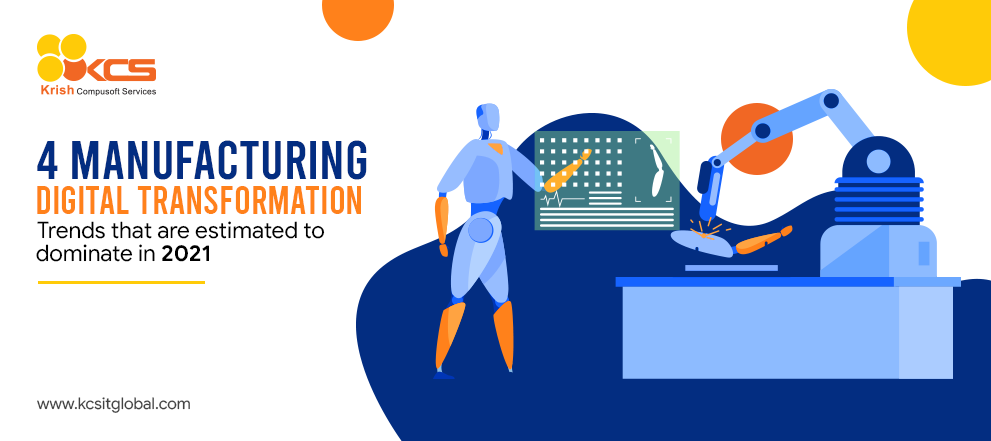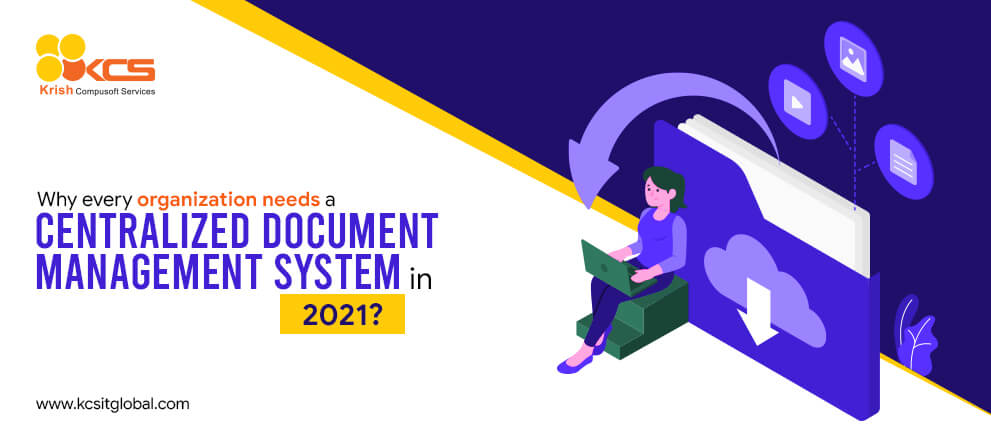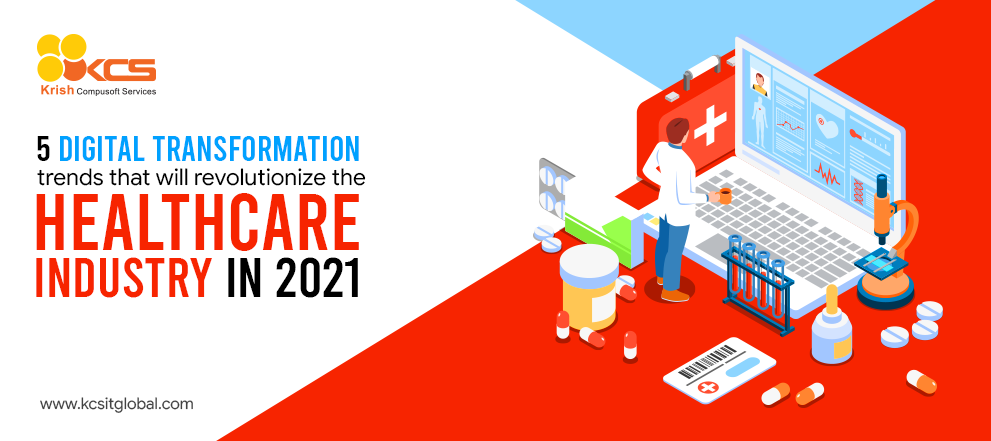
Category: Manufacturing & Engineering
4 Manufacturing Digital Transformation Trends that are estimated to dominate in 2021
The ongoing 4th industrial revolution has modernized the engineering manufacturing industry and the way it used to function. Almost every department and operation are interconnected, well-stored, and automated. The existing industry trend has allowed manufacturing to enhance operational transparency, decrease costs, accelerate production time, and offer exceptional customer support. However, with the beginning of the new decade, this is the perfect time to welcome Industry 5.0. While the 4th revolution drove the integration of cutting-edge technology that optimized production operations, the 5th is estimated to trigger established collaborations among humans and automated systems. Nevertheless, it is not assured whether or not the 5th revolution is here but the COVID-19 epidemic has accelerated its arrival.
Digital manufacturing facilitates industrial manufacturers to:
- Reduce time to market
- Streamline inventory
- Enhance quality
- Turn up quickly to satisfy customers’ needs
- Remove bottlenecks
- Increase the number of products manufactured
Digital transformation trends in manufacturing for 2021 will come from a similar place, though convenience might not be quite the right word. The finished goods of manufacturing are not going to vastly change, but the way in which they are prepared will continue to evolve. This will eventually become unrecognizable compared to practices used even three decades ago. Let us explore some of the hottest trends that are expected to dominate 2021 and beyond.
1. Internet of Behavior:
Without a doubt, the internet of things (IoT) is no longer a part of science fiction. The IoT technology that connects any electronic gadgets to the internet is likely to underway and is already a reality in various industrial sectors. The collection of data and usage by IoT offers valuable insights into users’ interests, preferences, behavior. This is something that has been perfectly tossed as the Internet of Behaviors (IoB). It is something we will become gradually aware of in our daily lives and work. IoB combines the current technologies that aim to the individual directly and connects the resultant data to appropriate behavioral events like cash purchases or device usage. This data is used by enterprises to influence human behavior.
2. Hyper-automation:
Though Hyper-automation has been trending at a significant pace for the past couple of years, the Coronavirus pandemic has enhanced demand with the unexpected requirement for everything to be digital-first. The amalgamation of various machine learning (ML), packaged software, and automation tools are combined to execute work. Another stage of intelligence is incorporated into accessible automation strategies to connect humans into the process. Hyper-automation goes beyond our typical automation technology. Using robotic process automation (RPA) the task completion can be duplicated, while hyper-automation, RPA will be just the first step into the world of AI technologies.
3. Distributed Cloud:
The cloud is slowly becoming more popular with manufacturers as it meets their needs with its increased ease of use across various locations and the rendered IT assistance. This allows manufacturers to spend more time concentrating on everyone’s goal, enhancing their business’ revenue. It is so well appreciated that they call it ‘cloud manufacturing.’ Cloud is a network that facilitates its users to store and manage data, software over the internet. It saves time and money besides being easily buildable, making it significantly viable and operational.
It is a process of using well-established resources like ERP through the cloud. The data can be retrieved, updated, and applied anytime anywhere. Cloud manufacturing was coined to manage big manufacturing which signifies to follows the entire manufacturing process from the designing stage to production to maintenance.
4. AI engineering:
A powerful AI engineering strategy will help the scalability, reliability, performance, and interpretability of AI models along with offering the full value of AI investments. It can increase or automate decisions and tasks executed by humans, making it crucial for digital transformation. Using AI, enterprises can reduce labor costs, enhance customer service or processes, and make a unique business model. AI engineering offers a route, making AI a part of the mainstream DevOps procedure instead of a set of isolated and specialized projects. It brings jointly a range of disciplines to docile the AI hype while offering a clearer path of value when operationalizing the arrangement of various AI tactics.
Conclusion:
Enhanced efficiency can spell a bright future for the manufacturing industry. A transformation of smart manufacturing will save your enterprise’s money and translate into increased profits, more jobs, and healthier economies. As our machines shift to a more complex age, hence do our employees, and products, cooperatively ushering in a new era of production. If you are planning to upgrade your manufacturing business ecosystem, then KCS is here to give the best digital transformation consulting. They have a team of highly-qualified tech-consultant offering world-class digital transformation solutions to their clients.
Recent posts
-
KCS Joins Forces with Biarca on Cloud Security, Announces Completion of Strategic Acquisition
March 30, 2022
-
Krish Compusoft Services (KCS) appraised at (CMMI)® Maturity Level 5
November 04, 2021
-
KCS commemorates its 20th anniversary with a series of exciting activities and announcements
August 15, 2021
Articles
-
How Utilities are Adapting to the ‘New Normal’ Post Pandemic in the Realm of Customer Experience (CX)
February 02, 2022
-
How Enterprise Logic Apps Create Business Value for Azure Users
November 15, 2021
-
Accelerate Your Journey To Smart Manufacturing Transformation - The Ecosystem Approach
October 26, 2021











